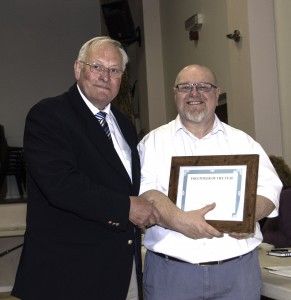What matters to you in your local area?
Is it the state of the local park, the need for more activities for young people, improving services for older people, making the roads safer or ensuring that local businesses can thrive?
Whatever needs changing in your neighbourhood, you could be just the person to change it by becoming a local councillor. No other role gives you a chance to make such a huge difference to quality of life for people in your local area. It is a good time to start thinking about standing as a councillor as the District and Parish Council elections will be taking place on 7 May 2015.
What do councillors do?
Councillors are elected to the local council to represent their local community, so they must either live or work in the area. Becoming a councillor is both a rewarding and privileged form of public service. You will be in a position to make a difference to the quality of other people’s daily lives and prospects.
Being an effective councillor requires both commitment and hard work. Councillors have to balance the needs and interests of residents the political party they represent (if any) and the council. These will all make legitimate demands on a councillor’s time, on top of the demands and needs of their personal and professional lives. Before you consider becoming a councillor you may want to discuss it with your family and friends to make sure they understand what you are taking on. You will need their support as you’ll have to spend some of your spare time on council business.
Independent or political?
Over 95 per cent of councillors are members of political parties, but you don’t have to be a member of a political party to stand for election as a councillor. You can either stand as an independent candidate or as a group or party political candidate. The political parties in your local area are already looking for people interested in representing them and will be pleased to hear from you. They will be able to support your election campaign and your work as a councillor.
Don’t worry if you’re not already a party member as they will be able to go through all the options with you. Some parties have special training and encouragement schemes for new candidates. Some places have organised residents’ associations or community groups which put candidates up for election.
Next steps to becoming a councillor
Once you decide you want to take it further and put yourself forward as a candidate, what’s the next step? The answer depends on whether you want to represent a political party or group or would like to stand as an independent candidate. If you want to represent a political party then the next step would be to get involved with your party locally as soon as possible. This will help you find out more about what the role entails, who you will be working with and what it takes to win elections.
Ultimately it’s up to the political parties’ local groups to decide whether to select you as a candidate, so you need to make contact with them as soon as possible and get involved with their work. Political parties will expect you to be, or become, a party member.
If you are thinking of standing as an independent candidate your next step is to start building your profile so that local people know who you are, and working out your position on local ‘hot’ issues such as crime, traffic, the environment and schools. You will need to know what your local council is doing about these issues and how your own opinion differs from the political parties. Nearer election time, as you start going door to door persuading people to vote for you, you will be challenged on your opinions.
Whether you have been selected by a party or are standing as an independent candidate, you must make sure that you are officially nominated as the election date draws nearer. Election packs will be available from the parish council clerk from 17 March 2015. All packs have to be returned to AVDC by 9 April.
The web site below gives you more information about parish councillors in general, and the attached leaflet gives you information about Pitstone parish council. We look forward to hearing from you.
http://www.beacouncillor.org.uk/


